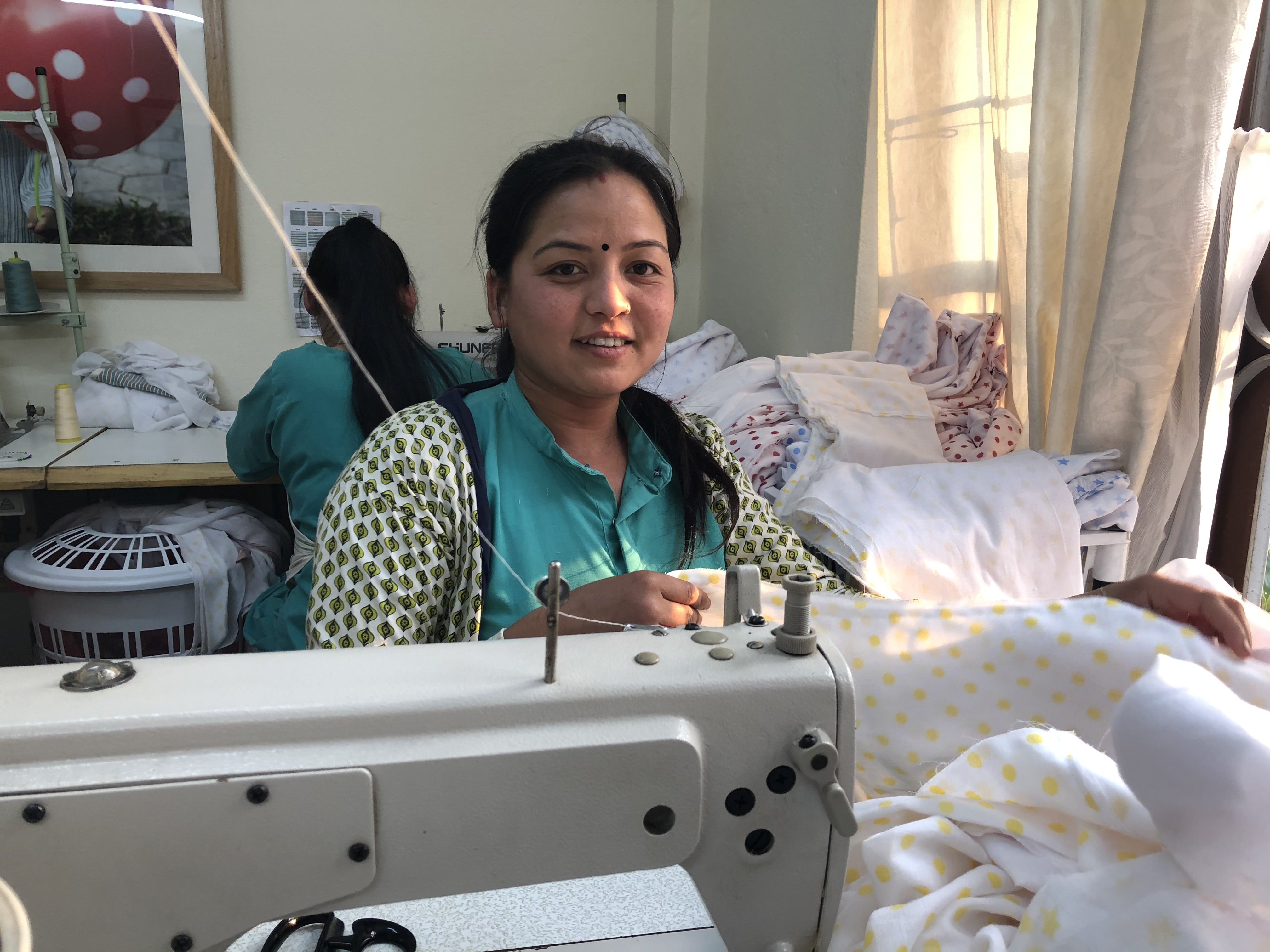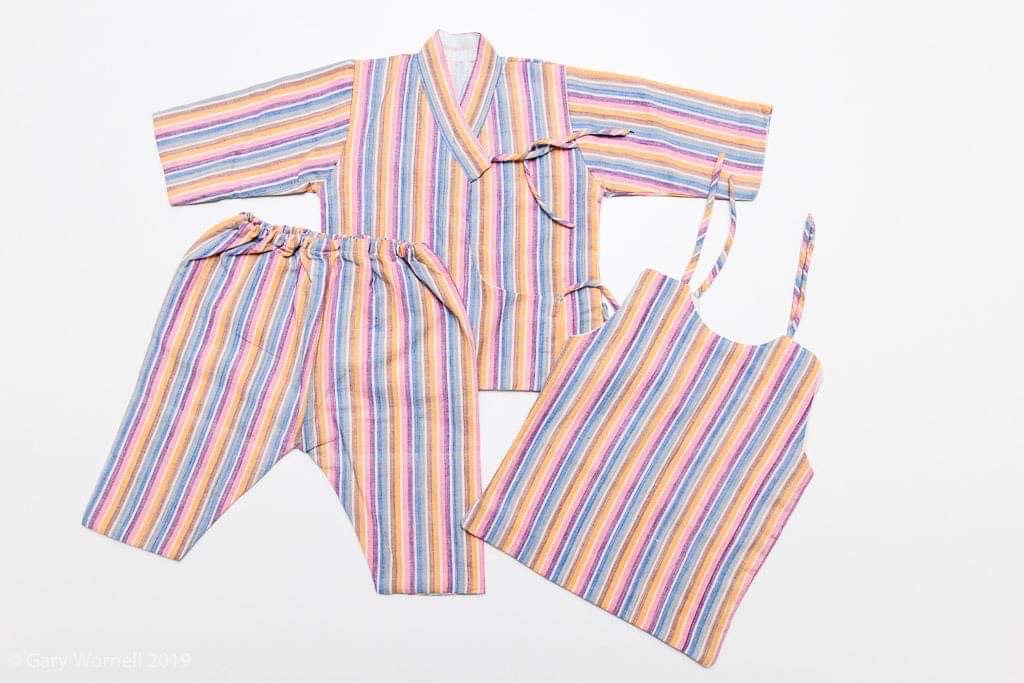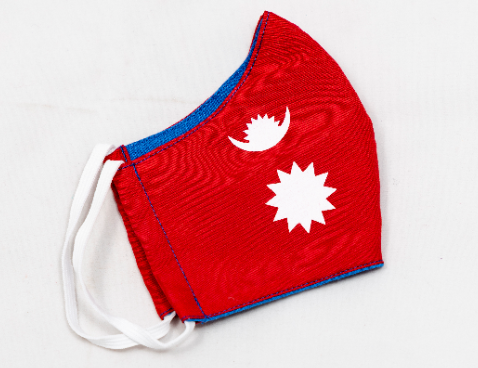Business | Nepali banks failing their country
“In nine months (of the current fiscal year) the 27 commercial banks of Nepal made a net profit of Rs 50.74 billion… Let these banks help establish isolation centers—1,000 bed each,” tweeted journalist Subina Shrestha on April 29. (The Nepali bits in this tweet and the tweets discussed below have been translated into English.)
The respondents to Shrestha’s tweet were mostly pessimistic. “I don't think they are rich enough for this type of greater good for larger public,” replied Roshan Regmi. “Is the banks’ social responsibility limited to making money?” asked Sita Mademba. “Seems you misunderstood it,” Ajay Das chimed in. “Nepali banks do nothing except make profits. The social responsibility of their operators is limited to establishing prizes in the names of their mothers and fathers.”
Indeed, even amid a raging pandemic, it was a bumper year for most Nepali commercial banks. Compared to the same period last fiscal, the 27 banks’ net profits increased by Rs 6.07 billion, a 13.5 percent increase.
Take the case of Nepal’s biggest commercial bank by paid-up capital, Global IME Bank. It made a net profit of Rs 3.59 billion in the first nine months of the current fiscal. Interestingly, even during the pandemic, the bank increased its net profit by a whopping 32.40 percent. Yet the bank has done precious little to help the country combat Covid-19. (Our repeated attempts to contact bank authorities for comments were unsuccessful.)
Global IME’s Chairperson Chandra Prakash Dhakal is a shadowy figure. In its 2019 report, the Center for Investigative Journalism, Nepal (CIJ Nepal) named Dhakal among 55 Nepali nationals with illegal properties abroad. “Chandra Prasad Dhakal is found to have purchased the Sunbird Computer Consultants Limited on August 9, 2002,” says the report. “According to the documents received by the CIJ Nepal… he had rechristened the company as International Money Express (IME) UK Limited.”
Rather than invest in their country or help it overcome a crippling pandemic, top bankers like Dhakal are busy stashing their wealth abroad and cheating Nepali tax authorities.
This is not to single out the IME group and Dhakal. In the first nine months of the current fiscal, only one bank has made more profit than Global IME: Nabil Bank. Compared to its sheer heft, its contribution to the country’s anti-corona efforts has been puny. Incidentally, the same CIJ Nepal reports implicates the family behind the Chaudhary Group—who are also Nabil’s operators—in building wealth abroad.
“Every Nepali citizen and organization is constitutionally obliged to help the country in times of crisis as per their capacity. It’s also a moral duty,” says Uma Shankar Prasad, associate professor of economics at Tribhuvan University. Rather than our own organizations, he rues, outside agencies are doing more to help combat Covid-19 in Nepal. “There can be no question that the banks that have made so much money in this country should help it during a crisis like this.”
Even in India, adds Prasad, you have SBI as well as other commercial banks investing a lot in the betterment of their society. Nepali banks also spend on social causes but on a much smaller scale compared to their size.
“Why can’t Nepal’s profitable banks build isolation or quarantine centers? How about a subsidized hotel where the Covid-19 can be kept and treated?” Prasad asks.
Startup | App to connect music lovers with music makers
Long practice hours, complicated studio deals, and puzzling financial management—making music isn’t that easy these days. But the biggest issue of all is the limitations in options for launching new albums in a community that isn’t as interactive as it used to be, a group of music enthusiast friends realized. So they decided it was time to do something about it.
“Who said music is easy?” asks Ritavrat Joshi, a member of the group.
The solution was to build an interactive community that grows together, an app to bring musicians and their audience in direct contact with each other by sharing songs, albums, merchandise, gig alerts or, even regular updates.
The app was released on April 10, 2021, in collaboration with artists and avid music listeners. The grand vision of the makers of the app is to change the listening culture in Nepal, to give the audience the best music experiences all while serving the artists so that they too can receive their fair share without the hassle of mediators in between. When toying with the idea of doing something for the music industry, Joshi had been talking to different new portals and platforms that are here to support the music scene, but couldn’t find any that supported big and small artists in terms of payment ratios and copyrights issues. He then talked to singer Bartika Rai about his ideas and together, they developed a basic concept for the app.
With Sushant Roy at the back-end and design, the idea finally came to life. After Avishek KC and Suzeena Shrestha joined the team, they finally moved forward with the app with Gorato Works as the developer team.
Since its launch, Noodle has been involved in various gigs and tours in direct coordination with artists such as Zero Brains and Retro Rockets, and the recent launch of ASM’s album at Beers N’ Cheers. But the main focus is still on the virtual service app. This means that NoodleRex has many more features to be announced and not just limited to music sales.
Noodle is built with a user-friendly interface that allows guests to get the full experience of Nepali music. After the login credentials are confirmed, app users can see 30-second previews of songs from various artists. The full songs can be purchased in HD straight to your phone. The downloaded music hence is available to you even when you’re offline.
The app doesn’t charge artists who want to upload their work on the platform. Anyone interested can simply contact them and answer a few of their questions. However, their songs must be original and of high quality since Noodle wants to bring HD audio experience back in style.
Any genre of music is welcome. The team provides the artists with a personal dashboard where they can see sales and unit shifts in real life. The artist will be paid according to those numbers.
“Streaming platforms and fair payment ratios are still far-fetched ideas in Nepal,” Sushant Roy shares. “What we’re trying to assure is a sustainable future for all artists. Here, the support they receive, both social and financial, is immediate and first-hand.”
The price of one song is minimum Rs 99. However, the artists have the freedom to change that. The price of an album can be decided after rounding off the number of tracks or by the artists themselves.
Users who are logged in can use digital payment services such as eSewa, Khalti, and FonePay. Users outside Nepal can use PayPal, VISA, and Mastercard services are being introduced soon. Cash on delivery will be available for the merchandise sales feature of the app
So far, artists in Nepal have been supportive of the idea.
However, the biggest surprise came from the audience's side of things. The recently launched ASM album has already made more than 60 sales as of April 20, 2021, and that was within ten days of the app’s launch.
Consumers have also been buying older albums of Astha Tamang Maskey, Jerusha Rai, and many other artists who have a niche fan following.
Why did you name it Noodle?
Naming the app was a long process but ‘Noodle’ stuck with us because we see the app like a bowl of noodles—full of different tastes and flavors. We are also “noodling” around ideas to make the Nepali music scene better. So the name just clicked.
Kokroma: Finland’s Baby Box comes to Nepal
The government of Finland provides a ‘Finnish Baby Box’ to every pregnant woman. The box contains all the required materials for infants and new mothers. Rewati Gurung, a 37-year-old social researcher, learnt about this scheme in 2016 and felt that someone had to start proving such boxes in Nepal as well.
Toying with the idea of doing it herself, Gurung tried to find out the best materials, including maternity garments, to be included in the box, if it were to be given to Nepali mothers.
It was time for the documentary-maker, who has visited different parts of Nepal while working with various organizations, to draw from her experience. Her objective was to not repeat the mistakes made by various other brands: “Some Nepali brands even lie to their customers and present false claims in their advertisements.”
Three years later, in 2019, Gurung launched the Nepali version of the Finnish Baby Box—she called it Kokroma. (Kokro in Nepali refers a traditional cradle made up of bamboo).
“I was worried about how the product would fare in the market,” said Gurung. But her confidence grew as supporters, friends, mentors, and co-workers encouraged her to continue. “Apart from earning money, I always work to leave a meaningful impact on the society,” Gurung tells ApEX.
Looking for opportunities amid the pandemic,
we started making masks for children
Launching the business from scratch was not easy. She started looking for clothes weaved in Nepal without using chemicals. Being a health-conscious mother, she previously had weaved kokro and tori ko sirani (pillow made of mustard seeds) for her child just the way it was done traditionally to ensure that the baby’s head assumes a proper round shape.
She even traced the source of raw textile production. This led her to various prisons, where male inmates weave clothes for prison use. Gurung encouraged them, provided new machines and explained to them how learning skills could help them in the long run.
She was highly motivated by the positive response from jailers and officers while working with the prisoners. “It was challenging, but I never thought government officers could be so accessible, helpful and friendly,” said Gurung.

Moreover, she employed women for further sewing and tailoring. She picked domestic migrant women who came to Kathmandu to provide quality education to their children. Gurung handles the technical parts and designs products.
The production process begins with the designers creating sketches and choosing color combinations. Then, the same samples are woven by the workers in the prisons. This again goes back to the designers who customize the size and the designs. The final cutting and stitching is completed by the women before it makes its way to the market.
A startup that began with an investment of Rs 200,000, Kokroma now exports to Switzerland, Belgium, and the UK. Gurung is soon opening an outlet in Bouddha. But for now, she sells from her website, Facebook, and Instagram. Various other outlets also sell her products.
The Covid-19 pandemic and the lockdown imposed to contain it have created new challenges for the company. But kudos to the Gurung and her team; the company has so far taken the challenges head-on. “Looking for opportunities in the midst of the pandemic, we started making masks for children,” says Gurung, who has also started customizing masks for companies.
“We have gained a decent recognition. In the coming days, certainly, we will make it huge,” says Gurung.
Biz Brief | Coca-Cola’s new bottle at just Rs. 25
This week, Coca-Cola in Nepal announced the launch of a new 175 ml glass bottle offering great drinking experience to consumers at the affordable price of just Rs 25. Additionally, the new glass bottle is designed especially for Nepali consumers as it comes with a new Coca-Cola logo in Nepali script printed on the bottle reflecting the brand’s strong commitment towards building deeper connections with its consumers locally, a press release issued by the company read.
The introduction of the new RGB (Returnable Glass Bottle) is the smallest in Coca-Cola’s beverage category available in Nepal which demonstrates Coca-Cola’s ongoing commitment in giving Nepali consumers more beverage choices in various packages for the occasions they want.
The RGB bottles are reusable thus, making them environment friendly. The glass packaging preserves the freshness of the cold drink. The new 175ml RGB is available for Coca-Cola, Sprite and Fanta as well and can be found in grocery stores across Kathmandu, Lalitpur and Bhaktapur.
The launch of the new product is a part of Coca-Cola’s ongoing Uplift campaign which comes with the tagline “Diusai Jhap Jhap, Coke le Up” which aims to inspire young consumers to grab a Coca-Cola during their afternoon breaks to feel energized and uplifted.
























